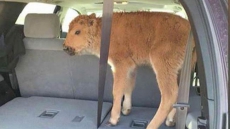TORONTO — Cancer Care Ontario is calling on the province to take urgent action to help a number of chronic health problems among aboriginal communities.
The organization says rates of disease are higher among first nations, Inuit and Metis populations than their non-aboriginal counterparts.
They say 63 per cent of First Nations people living off reserve and 61 per cent of Metis suffer from one or more chronic conditions, compared to 47 per cent of the general population.
Cancer Care Ontario is recommending policies the Ontario government could put in place to combat diabetes, heart disease, cancer and respiratory disease.
They focus on limiting commercial tobacco use, curbing excess alcohol consumption, reducing rates of physical inactivity and promoting healthy eating.
Cancer Care Ontario says the recommendations were developed with input from aboriginal communities and are based on pre-existing programs, such as Smoke Free Ontario, that have already produced positive results.
"The path towards healthier First Nations, Inuit and Metis communities involves not only taking practical actions directed at encouraging healthy behaviours, but also creating environments that encourage people to make healthier choices," the organization's director of the cancer control unit Alethea Kewayosh said in a statement.
"The recommendations in this report focus on creating supportive environments that empower First Nations, Inuit and Metis people to make healthy lifestyle choices to reduce their risk of chronic disease, including cancer."
Other measures include ramping up the number of culturally appropriate alcohol treatment programs in aboriginal communities, anti-smoking efforts specifically targeting youth, social media campaigns promoting the benefits of tobacco- and alcohol-free living, and programs to teach people about growing and preparing traditional, healthy food.


